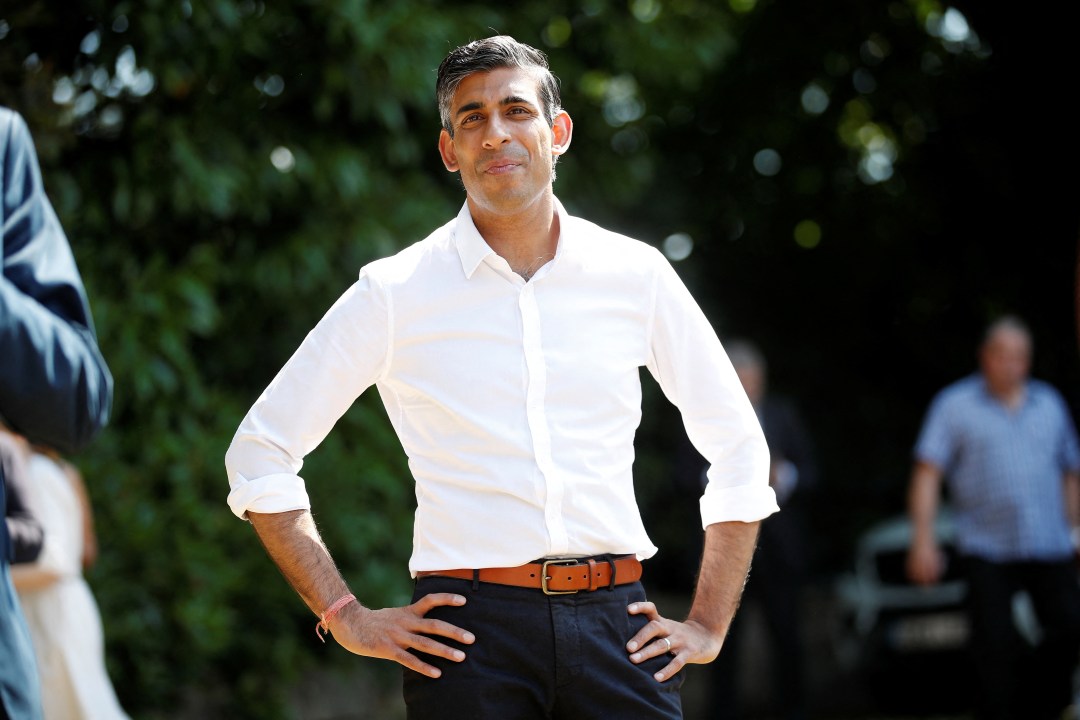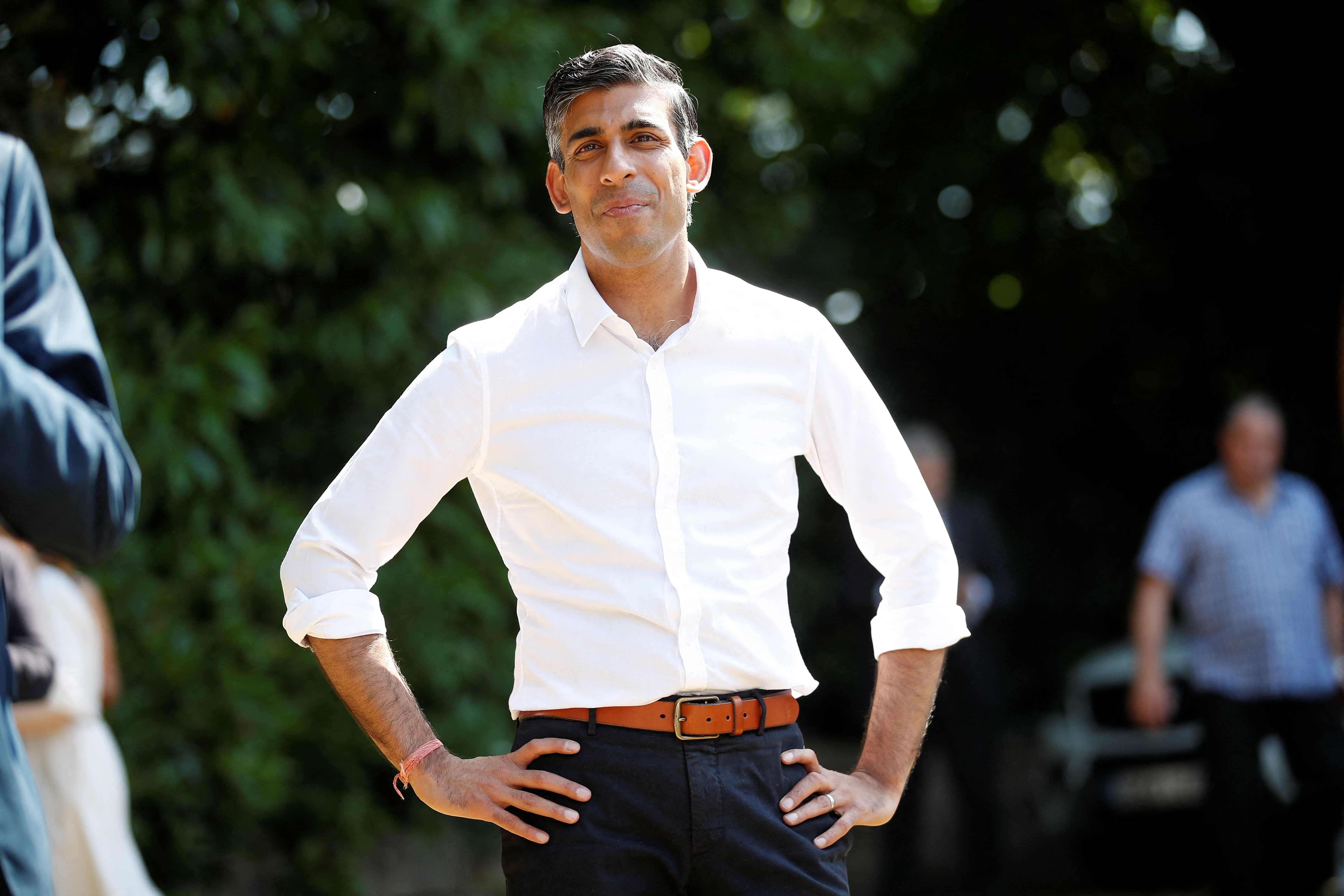Rishi Sunak took a major risk tonight, agreeing to a one-on-one interview with Andrew Neil on Channel 4 News. As Katy Balls says on our reaction podcast, more often than not politicians come crawling out of Neil’s interviews. At best, they hope to survive them.
Tonight Sunak faced the most detailed grilling on his economy agenda since the leadership contest began. There was very limited time for Sunak’s personal stories or the rehearsed slogans that both candidates have taken to repeating on the campaign trail. It was instead a serious scrutiny of Sunak’s plan to stick with tax hikes and fiscal restraint.
Neil’s main questions were about timing and priorities: no one is asking you to borrow lots more money, he said to Sunak, but why push for tax hikes when all the West is teetering on recession. Sunak insisted he was doing what was necessary from the fiscal side to get inflation – nearing double digits – under control. ‘Inflation will make everyone poorer’, Sunak said. ‘Recession will make everyone poorer too’ Neil rebutted.
There was also a very interesting framing of the current tax burden, showing two different sides of the debate. Neil pointed out that the tax burden under Rishi Sunak had jumped to a 72-year high; and that the former Chancellor had decided to make lower paid workers cover the extra funds for the NHS and social care through a National Insurance levy, exempting wealthier pensioners from payments that would disproportionally benefit them.
Sunak countered that he had been an ally of the low-paid during his time in the Treasury, citing the ‘two million lowest paid who move from universal credit into work’ that now benefit from his changes to the universal credit taper (as well as from more recent changes to the NI threshold).
Tonight’s interview also raised questions about the difference between shifting circumstances and outright u-turns. Neil suggested that on windfall taxes and energy VAT cuts, Sunak’s tax strategy fell firmly in the latter camp. But Sunak insisted that these changes in policy occurred only when new circumstances arose – including how long oil and gas companies would benefit from higher profits, and how much energy bills might rise this autumn. It was notable that Sunak described the VAT cut on energy bills as one of the ’only lever(s) left’ to pull to help with that specific area of the cost-of-living crunch: a reminder of the limited options politicians have when it’s the Bank of England that controls interest rates and can do the most to curb inflation.
On most questions, Sunak had a long list of answer to give, even if he faced heavy scrutiny for them. The one exception to this was a very pointed question from Neil about asylum seekers: is there something ‘unsavoury’, he asked, about Sunak’s willingness – coming from an immigrant family – to turn away asylum seekers with a valid claim to come to the UK. Sunak fell back on answer we’ve heard before – that his family came to the UK legally – while others migrants do not. But it was clear Neil was asking Sunak about people with rightful claims to seek asylum in the UK. On that, Sunak didn’t provide much of an answer, apart from a blunt revelation that he thinks these decisions should be ‘sovereign’ ones, rather than set by International standards.
All things considered Sunak did indeed survive tonight’s interview. But is survival enough? He agreed to the grilling in an effort to catch up in the polls amongst the Tory grassroots; on his own admission he is behind Liz Truss. Tonight’s interview provided a lot of interesting discussion, as well as a reminder that – agree with him or not – Sunak can hold his own when it comes to debating economics. But voters will be familiar with these credentials. The bigger question, soon to be revealed in the polls, will be whether he managed to sway hearts and minds.
Listen to Kate Andrews speak to Katy Balls and Max Jeffery about the interview on the latest episode of Coffee House Shots:








Comments